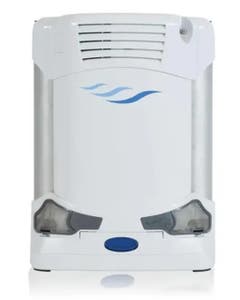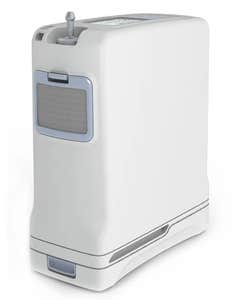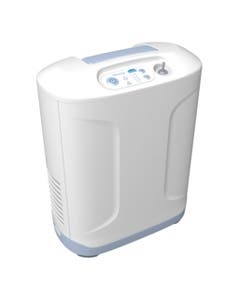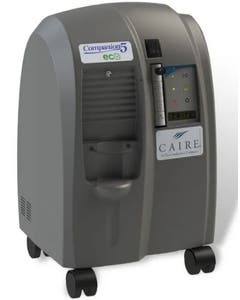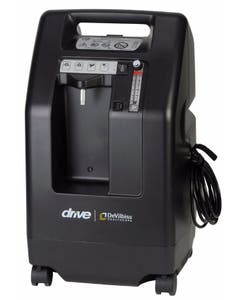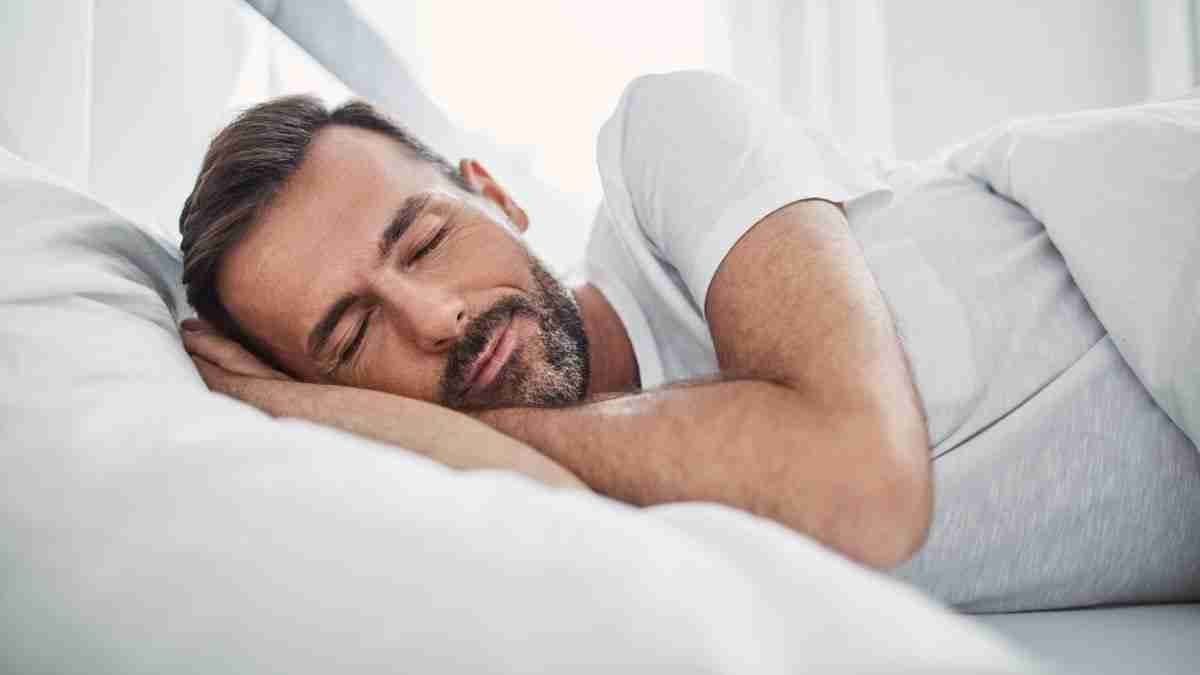
While it is normal for oxygen levels to drop while you sleep, if the drop is too low it can increase the risk for disrupted sleep and even cause serious health problems. It is important to recognize the symptoms of low oxygen. If you suffer from low oxygen levels, oxygen concentrators can offer supplemental oxygen to help ensure a peaceful and healthy rest.
Symptoms of Low Oxygen While Sleeping
Normal oxygen levels while sleeping are generally between 90% to 100%. If oxygen saturation levels fall below 88%, then you may be at risk. Symptoms of low oxygen include:
- Restless sleep
- Morning headaches
- Increased heart rate
- Rapid breathing
- Shortness of breath
- Gasping for air when you wake
- Elevated blood pressure
- Blue tint to your lips, nail beds or earlobes
- Loud snoring
- Daytime fatigue
Why Do Patients Experience Low Oxygen at Night?
One of the main reasons for people to experience low oxygen levels at night is due to a sleeping disorder or respiratory health disorders. Most patients suffering from asthma, COPD, or Sleep Apnea suffer from lower blood oxygen levels during sleep.
While COPD and Asthma cause breathing disorders during the day too, obstructive sleep apnea can cause severe restrictions in the normal airflow reducing the oxygen levels in the blood during sleep.
Which Patients Need Oxygen at Night?
Certain health conditions can cause oxygen deprivation. If you have been diagnosed with COPD, lung disease or pneumonia, your breathing capacity can be compromised at night. Other conditions, such as sleep apnea, pulmonary fibrosis, anima, congenital heart disease, and emphysema, may also reduce oxygen to the brain while you sleep.
Why Does My Oxygen Level Drop When I Sleep?
Everyone, including those with healthy lung function, experience a drop in oxygen levels when they sleep. You don’t breathe as deeply when you are sleeping, and not all your lung spaces function at full capacity. However, for those who suffer with a respiratory condition, drops in oxygen level while sleeping can be of some concern. Your doctor may prescribe the use of supplemental oxygen while you sleep if your blood oxygen level drops too low.
What Is the Normal Oxygen Level While Sleeping?
If your waking oxygen saturation is greater than about 94 percent on room air, it is unlikely that your saturation during sleep will fall below 88 percent. Many people with respiratory conditions may be fine breathing without supplemental oxygen while they sleep if they fall within this blood oxygen range. If you do use supplemental oxygen while sleeping, it is important to test for the right flow rate. As long as your blood oxygen saturation is in the 90s, you are getting the right amount of supplemental oxygen.
How to Increase Oxygen Levels While Sleeping
There are a few lifestyle changes that may improve your breathing at night and help maintain healthy oxygen levels while you sleep. These include:
- Regular exercise stimulates your respiratory system and improves your lung capacity.
- Adjust your sleep position; sleeping on your side can alleviate the weight on your lungs and improve respiration.
- Avoid alcohol near bedtime. Alcohol over relaxes your muscles and causes your airway to narrow which may interrupt deep sleep. Try to avoid drinking alcohol for four hours before you go to bed.
- Home oxygen concentrators and portable oxygen concentrators can provide supplemental oxygen to help regulate oxygen levels for a healthier and more peaceful sleep. Note: These devices require a prescription, and your doctor will also recommend the best flow settings to suit your needs.
Can I Use a Portable Oxygen Concentrator at Night?
Portable oxygen concentrators can be used at night if you adjust the setting to a prescribed flow rate from your doctor. If the demand for supplemental oxygen is more than a portable oxygen concentrator can deliver, you may need to use a home oxygen concentrator to meet your oxygen requirements. Your doctor may prescribe a setting for sleep that is different than the use of the oxygen concentrator during the day, due to the change in respiratory activity at night.
Are There Any Side Effects of Using an Oxygen Concentrator at Night?
The side effects of using an oxygen concentrator at night are no different than during the day. Most patients need to be careful of oxygen toxicity, or too much oxygen and follow their oxygen concentrator settings as prescribed. Some patients may experience:
- Sore nasal passages from the nasal cannula
- Morning headaches
- Fatigue
- Dizziness if you are taking in too much oxygen
- Ear pressure and pain
- Skin irritations at the point of nasal cannula contact
Using Oxygen Therapy with Sleep Apnea
Oxygen therapy is sometimes used to treat obstructive sleep apnea (OSA), due to a condition called hypoxemia that can result from overnight interruptions in breathing. It's important to learn what role oxygen can play in treating OSA and whether other options, such as continuous positive airway pressure (CPAP) therapy, may be a better choice for you.
If a healthcare provider suspects you have sleep apnea, they'll likely send you for a sleep study in a sleep laboratory to confirm the diagnosis, although it is sometimes possible to complete the study in your own home.
Can I Use a CPAP Machine with an Oxygen Concentrator?
It is a possibility that adults using CPAP might need supplemental oxygen along with their CPAP therapy. Supplementary oxygen is typically needed for older people who have been diagnosed with some pulmonary disease like COPD or lung cancer.
For the convenience of the patients, all CPAP machines can be connected to an oxygen concentrator. The connection point is generally located between the input valve on the concentrator and the mask. It is important to note that only continuous oxygen can be used in this way.
You can find more details here about connecting your CPAP machine to your portable or home oxygen concentrator.
Can I Connect a BiPAP Machine to an Oxygen Concentrator?
For patients using BiPAP therapy, the same connection method is applicable to all BiPAP machines and an oxygen concentrator.
Adding O2 to your CPAP therapy is a very simple method irrespective of the equipment you are using.
How Does A CPAP Machine Help in Sleeping with An Oxygen Concentrator?
When the airway closes during a sleep apnea event, you aren’t able to breathe in air as you usually do while awake. That means your organs – particularly your heart and brain – and other tissues aren’t receiving the average levels of oxygen they need to stay healthy and work the way they should.
When you use CPAP with oxygen, you have two main benefits:
- The CPAP device and delivery system help keep your airway open for normal breathing while you sleep and allow you to breathe in more the supplemental oxygen.
- The supplemental oxygen provides your body with the extra oxygen it needs to function normally.
Adverse Effects of Using CPAP Machine with An Oxygen Concentrator
Many of the side effects experienced with an oxygen concentrator may be experienced with a CPAP machine. Patients may have morning headaches, dry mouth or nasal irritations from the mask or nasal cannula. Frequent use of the mask or nasal cannula can also lead to skin irritations from the mask contact. Making proper adjustments to both your CPAP equipment and supplemental oxygen with the help of your doctor can resolve most issues and help you achieve a successful balance of CPAP and oxygen therapy.
What are the Benefits of Oxygen Therapy at Night?
Once you begin sleeping with an oxygen concentrator at night you may see improvements in your overall well-being. The oxygen concentrator regulates oxygen levels and keeps them from falling to disruptive levels, thus enabling a deeper sleep. With more rest, you will have a better mood during the day and increased stamina.
And with any existing health conditions, regular use of an oxygen concentrator at night can help reduce the risk of arrhythmias, pulmonary hypertension and even premature death.
Where Can I Buy the Best CPAP Machines and Oxygen Concentrators?
If you are looking to buy the best CPAP machines, you can always visit The CPAP Shop for the best range of CPAP machines for your sleep apnea therapy requirements.
If you need help selecting an oxygen concentrator, our knowledgeable customer care team is here to answer any questions. Give us a call at 888-941-1688 or email us at contact@oxygenconcentratorsupplies.com. Let us help you find an oxygen concentrator that best fits your needs.
This post was originally published on April 15, 2020 and updated on November 9, 2023.



